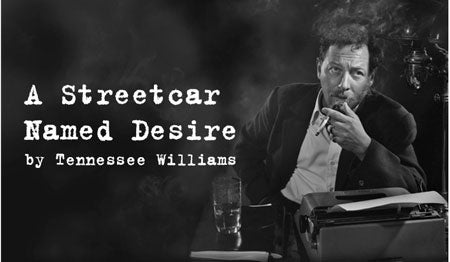First Night: A Streetcar Named Desire, Donmar Warehouse, London
Weisz struggles to reveal the magic in Williams classic

Your support helps us to tell the story
From reproductive rights to climate change to Big Tech, The Independent is on the ground when the story is developing. Whether it's investigating the financials of Elon Musk's pro-Trump PAC or producing our latest documentary, 'The A Word', which shines a light on the American women fighting for reproductive rights, we know how important it is to parse out the facts from the messaging.
At such a critical moment in US history, we need reporters on the ground. Your donation allows us to keep sending journalists to speak to both sides of the story.
The Independent is trusted by Americans across the entire political spectrum. And unlike many other quality news outlets, we choose not to lock Americans out of our reporting and analysis with paywalls. We believe quality journalism should be available to everyone, paid for by those who can afford it.
Your support makes all the difference."I don't want realism, I want magic," cries Blanche DuBois in Tennessee Williams' 1947 New Orleans masterpiece of broken dreams and tragic collapse, and she speaks for anyone who ever entered a theatre.
Rachel Weisz strikes a resonating cord as Blanche, the disgraced teacher and alcoholic young widow who has washed up on her sister's front door in the Elysian Fields district, seeking shelter and possibly a new life. No heroine ever started like this at rock bottom and stayed there for three hours while she deals with the advances of her sister's vengeful husband, Stanley Kowalski, and fights her demons. She was married to a very young boy who blew his brains out when she found him in the embrace of an older man.
Yup, it's very advanced this play in its almost metaphorical sexual ambiguity and director Rob Ashford – who's really best known as a choreographer – has filled in a ghostly mime show of the dead boy and his lover, the lurking medical staff and the flower seller with her refrain of "Flores para las muertos".
The good thing is that Weisz is so aptly young – Williams specifies her age as about 30, and her sister Stella, beautifully played here by Ruth Wilson, as 25-ish. This is how it must have come across with Vivien Leigh in the first London production.
The big shadow is cast by Marlon Brando in the film as Stanley, the greasy son of Polish immigrants. At the Donmar, Elliot Cowan goes down the wrong Olympian athlete route beaten by Iain Glen at the National seven years ago playing opposite a brilliant but unarguably over-age Glenn Close.
And Cowan is simply too English, too public school even, too Mr Darcy, a role he played on television in the Jane Austen send-up recently. He doesn't sound very New Orleans, or even New Jersey, more New Forest. Accents are a big problem here, so that Williams' music becomes as detached from the actors as, in a different way, they are from Racine at the National Theatre in the current Helen Mirren Phedre.
Weisz starts vague and wispy, with that glinting, cunning deceptiveness of the dedicated drinker, but she misses an awful lot of the role's cutting cruelty and sheer drag queen bitchiness. The line with the telephone – "I can't dial, honey" – is lost upstage. But she finds real pathos in her temporary berth with the dogged, domesticated Mitch (Barnaby Kay): "Sometimes, there's God, so quickly."
Blanche wants to deceive Mitch so much he wants her. And she at least finds a refuge in a more refined mind: she talks about a Mrs Browning sonnet over their Lucky Strikes and her past life flashes before her in the classroom. The family plantation in Belle Rive has gone, the parents have died and she's landed in a world of drunken card players, the plaintive sounds of a hurdy-gurdy and intimacies with strangers.
Stunningly, the young boy who comes collecting for charity, whom she kisses full on the mouth, is played by the same actor (Jack Ashton) who materialises as her dead husband. You suddenly realise that in these episodes, Williams is really writing about homosexual promiscuity, and Blanche is much less of a woman than a sexual butterfly with severely clipped wings.
There's a welcome variation on the flagstones and black back wall of Donmar design in Christopher Oram's high spiral staircase and wrought iron decoration around the circle level. Adam Cork's sound design is a mini-masterpiece of atmospheric yearning, and there's quality support from Daniela Nardini and Gary Milner as plate-throwing neighbours.
Blanche and Stella are both dark-haired, which must be a first, and you certainly get the rush of despair braking through the genteel façade. But this isn't a great Streetcar, and its qualities lie not so much in performance as in the revelation of a still ground-breaking dramatic, almost filmic, deliquescent structure and poetry.
Join our commenting forum
Join thought-provoking conversations, follow other Independent readers and see their replies
Comments